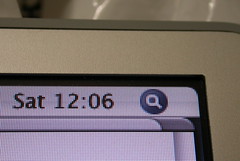As tech decades go, this one has been a jaw-dropper. Since my first column in 2000, the tech world has not so much blossomed as exploded. Think of all the commonplace tech that didn’t even exist 10 years ago: HDTV, Blu-ray, GPS, Wi-Fi, Gmail, YouTube, iPod, iPhone, Kindle, Xbox, Wii, Facebook, Twitter, Android, online music stores, streaming movies and on and on.
…
With the turkey cooking, this seems like a good moment to review, to reminisce — and to distill some insight from the first decade in the new tech millennium.
Things don’t replace things; they just splinter. I can’t tell you how exhausting it is to keep hearing pundits say that some product is the “iPhone killer” or the “Kindle killer.” Listen, dudes: the history of consumer tech is branching, not replacing.
…
Things don’t replace things; they just add on. Sooner or later, everything goes on-demand. The last 10 years have brought a sweeping switch from tape and paper storage to digital downloads. Music, TV shows, movies, photos and now books and newspapers. We want instant access. We want it easy.
…
Some people’s gadgets determine their self-esteem. … Today’s gadgets are intensely personal. Your phone or camera or music player makes a statement, reflects your style and character. No wonder some people interpret criticisms of a product as a criticism of their choices. By extension, it’s a critique of them.
…
Everybody reads with a lens. … feelings run just as strongly in the tech realm. You can’t use the word “Apple,” “Microsoft” or “Google” in a sentence these days without stirring up emotion.
…
It’s not that hard to tell the winners from the losers. … There was the Microsoft Spot Watch (2003). This was a wireless wristwatch that could display your appointments and messages — but cost $10 a month, had to be recharged nightly and wouldn’t work outside your home city unless you filled out a Web form in advance.
…
Some concepts’ time may never come. The same “breakthrough” ideas keep surfacing — and bombing, year after year. For the love of Mike, people, nobody wants videophones!
…
Teenagers do not want “communicators” that do nothing but send text messages, either (AT&T Ogo, Sony Mylo, Motorola V200). People do not want to surf the Internet on their TV screens (WebTV, AOLTV, Google TV). And give it up on the stripped-down kitchen “Internet appliances” (3Com Audrey, Netpliance i-Opener, Virgin Webplayer). Nobody has ever bought one, and nobody ever will.
Forget about forever — nothing lasts a year. Of the thousands of products I’ve reviewed in 10 years, only a handful are still on the market. Oh, you can find some gadgets whose descendants are still around: iPod, BlackBerry, Internet Explorer and so on.
But it’s mind-frying to contemplate the millions of dollars and person-years that were spent on products and services that now fill the Great Tech Graveyard: Olympus M-Robe. PocketPC. Smart Display. MicroMV. MSN Explorer. Aibo. All those PlaysForSure music players, all those Palm organizers, all those GPS units you had to load up with maps from your computer.
Everybody knows that’s the way tech goes. The trick is to accept your
gadget’s obsolescence at the time you buy it…
Nobody can keep up. Everywhere I go, I meet people who express the same reaction to consumer tech today: there’s too much stuff coming too fast. It’s impossible to keep up with trends, to know what to buy, to avoid feeling left behind. They’re right. There’s never been a period of greater technological change. You couldn’t keep up with all of it if you tried.


